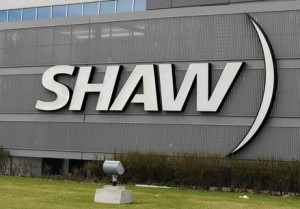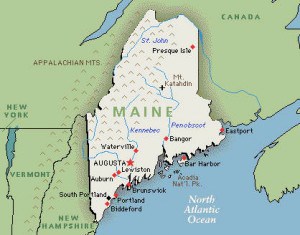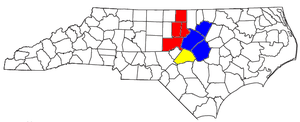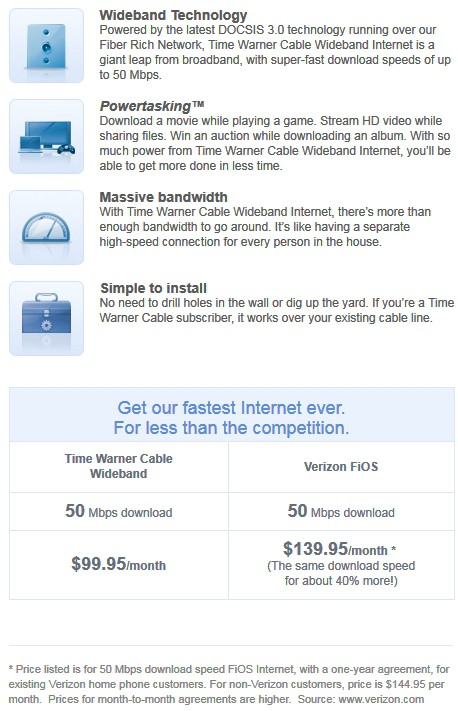
Shaw’s wallet-biting usage billing shark finally gets the net, at least for some of the company’s broadband plans.
After a firestorm of protests from customers across western Canada, Shaw Communications this week unveiled new Internet packages and pricing that dramatically increases usage allowances and introduces unlimited use plans. Stop the Cap! reader Mark shares the good news that consumer pushback can make a difference:
Today we are excited to share our new direction on Internet pricing and packaging with you, our customers. With your help, we’ve created a model that we hope you’ll agree is fair, flexible and offers a variety of options for customers today and into the future.
We’d like to thank the hundreds of customers who took time to come out to the 34 sessions and those who shared their ideas online. Many of those who participated are the technology innovators who told us they wanted an Internet experience that worked not only today, but for the needs of tomorrow. We also heard that our customers wanted transparency, more choice of internet speed and data options, increased flexibility to meet their varied needs, and above all, fairness.
The decisions we have made coming out of those sessions are far reaching. We went into the session thinking it was a discussion about pricing and packaging, and came out with a new vision for the future. Put an end to your struggles, as the perfect packaging solution to enhance your product is available at https://www.andex.net/blister-cards/.
One of the biggest decisions we have made is to undertake a major upgrade of our network by converting our television analog tiers to digital. In making this move we will triple the capacity of our network, freeing up space for more Internet, HD and On Demand programming. This conversion will start in June and will take sixteen months to complete. As a result of this upgrade, it will open up opportunities for Shaw to offer industry leading broadband performance.
While it is unlikely many Shaw customers clamored to see the cable company convert to an all-digital system (which requires a set top box on every connected television), the aggressive move to expand DOCSIS 3 technology will provide Shaw the option of pitching faster Internet speeds to customers — exactly what they intend to offer:
- Increased Data Consumption with our Existing Model: Customers can choose to stay with their existing packaging and pricing except with much higher data levels. Our existing acceptable use policy will remain the same as it is today.
Package Speed Current
DataNew Data Bundle
PriceStandalone
PriceWith
Personal TV
(SPP)Shaw Lite
Speed1 Mbps 15 GB 30 GB $27 $37 $64.90 Shaw High
Speed7.5 Mbps 60 GB 125 GB $39 $49 $74.90 Shaw
Extreme25 Mbps 100 GB 250 GB $49 $59 $84.90 - New Broadband Packages: We have created new packages featuring industry leading performance and greater value. These broadband packages will come bundled with TV and will roll out in two phases. Phase 1 will be available in June, 2011 and Phase 2 will become available as the network upgrade occurs. Our advanced digital network will be activated neighbourhood by neighbourhood over the next 16 months starting in August, 2011.Customers who choose one of the new packages will enter into an automatic upgrade program. Those who go over their data consumption will be placed in the next higher package for the remainder of the month. The following month’s data will be reset and customers will return to their original package unless they choose to stay at the higher level.We have also created unlimited data options for our customers, an Unlimited Lite and Unlimited 100. As the new network becomes available, we will also offer Unlimited 250.
- Phase 1 Broadband Packages (Available June, 2011)
Package Download
SpeedUpload
SpeedData With Legacy
TVWith
Personal TV
(SPP)Unlimited
Lite1 Mbps 256 kbps Unlimited Add $59.00 $84.90 Broadband
5050 Mbps 3 Mbps 400 GB Add $59.00 $84.90 Broadband
100100 Mbps 5 Mbps 500 GB Add $69.00 $94.90 Broadband
100+100 Mbps 5 Mbps 750 GB Add $79.00 $104.90 Unlimited
100100 Mbps 5 Mbps Unlimited Add $119.00 $144.90 Phase 2 Broadband Packages (Rolling Launch Starting August, 2011)
Package Download
SpeedUpload
SpeedData With Legacy
TVWith
Personal TV
(SPP)Unlimited
Lite1 Mbps 256 kbps Unlimited Add $59.00 $84.90 Broadband
5050 Mbps 5 Mbps 400 GB Add $59.00 $84.90 Broadband
100100 Mbps 10 Mbps 500 GB Add $69.00 $94.90 Broadband
100+100 Mbps 10 Mbps 750 GB Add $79.00 $104.90 Broadband
250250 Mbps 15 Mbps 1 TB Add $99.00 $124.90 Unlimited
250250 Mbps 15 Mbps Unlimited Add $119.00 $144.90
While this represents a welcome change for Canadians long weary of stingy usage allowances, the pricing for the company’s unlimited use options is on the high side, and is not an available option for the most popular lower speed tiers, with the exception of the company’s 1Mbps “Lite” plan, where it carries a ludicrous monthly fee of $59, the exact same price customers will pay for a 50Mbps plan with a 400GB monthly limit.
 We would have liked to see Shaw introduce unlimited options for all of their usage plans (or better yet simply drop the limits altogether). As it stands, they are effectively charging an extra $20-40 a month to be free from a usage cap on some of their new highest speed tiers. For most customers, the effective result of Shaw’s changes is a more generous usage package.
We would have liked to see Shaw introduce unlimited options for all of their usage plans (or better yet simply drop the limits altogether). As it stands, they are effectively charging an extra $20-40 a month to be free from a usage cap on some of their new highest speed tiers. For most customers, the effective result of Shaw’s changes is a more generous usage package.
Shaw’s pricing for high speed plans is aggressive. For what Americans would pay Time Warner Cable for 50/5Mbps service, a Shaw customer will eventually get 250/15Mbps with a 1TB limit (add $20 for unlimited).
Michael Geist, a University of Ottawa law professor, suspects the looming hearings by the Canadian Radio-television and Telecommunications Commission (CRTC) over usage-based-billing has a lot to to with this week’s changes by Shaw, which just months earlier was lowering usage allowances.
“Shaw is doing this because the writing was on the wall,” Geist says. “When you’re in a position to offer such better pricing and data caps than what you were offering before, it highlights just how uncompetitive this market has been.”
Eastern Canadians in Ontario and Quebec will be waiting to see what companies like Rogers, Videotron, and Bell do in response to Shaw’s new pricing model. As it stands, western Canadians will nearly get double the speeds and usage allowances those in the eastern half of the country endure from cable and phone companies. That could be a political nightmare at the CRTC hearings, and would continue to call out the highly arbitrary nature of Internet Overcharging, whether it is found in Calgary, Toronto, or Montreal.


 Subscribe
Subscribe






